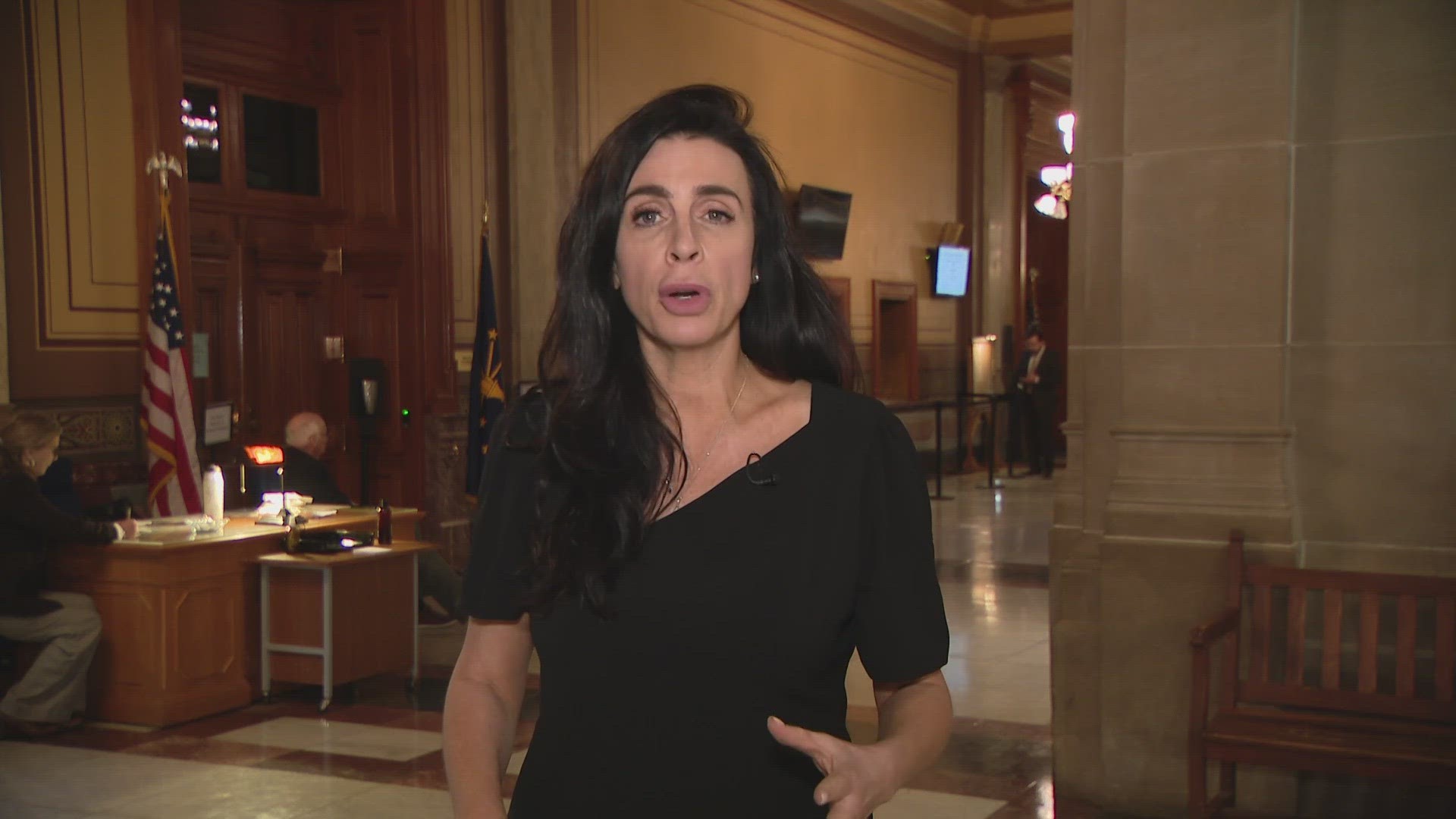INDIANAPOLIS — $4.2 billion.
That how much it costs the state every year for untreated mental illness.
Senate Bill 1 is making its way through the General Assembly to revamp the way the state approaches mental illness and addiction.
Some offered personal testimony Tuesday on the proposal and said change is greatly needed. Lawmakers heard from families who have lost loved ones to suicide and addiction. The state's lieutenant governor talked about her own family's struggles with mental illness.
SB 1 would overhaul a behavioral health system that was put in place in the early 1960s. It's a system many say is no longer working.
Under the bill, a 24/7 suicide crisis hotline would be established along with mobile crisis teams that could respond to a mental health incident and help de-escalate the situation. Another measure calls for crisis stabilization units, where people could go for follow-up care.
"I love this bill because it provides opportunities for people like me to find care before we lose our loved one," said Julie Long.
Long testified Tuesday about losing her 19-year-old daughter, Victoria, to a fentanyl overdose in 2019. Long called SB 1 "a matter of life and death" for those struggling with mental health issues and addiction.
"We have to set up an ongoing system in Indiana to help with these crisis," Long added.
The bill passed out of the Public Health Committee Tuesday on a 12-0 vote and now heads to the House floor.
Also on Tuesday, Gov. Eric Holcomb said he'll take action on Senate Bill 480 sometime in the next 24 hours. The bill would prohibit a physician or other practitioner from providing gender transition procedures to a person under 18 years old.
The measure prohibits doctors from prescribing hormones or "puberty blockers" to a minor, even with parental consent.
Last year, Holcomb vetoed the "transgender sports bill" which banned transgender females from competing in girls' sports. Lawmakers voted to override the veto. Holcomb said the issues are different.
"I think it may be easy to compare the two, but they're different," Holcomb said. "Last year, I stated where I stand right now that there was a process in place. It was working. There was no issue, in my judgment, and it prevented unfair competition of girls and boys sports. It worked. I still believe that we had no case then. We have no case now. We did not need that bill. This is entirely different and so that's how I reconcile the two."

